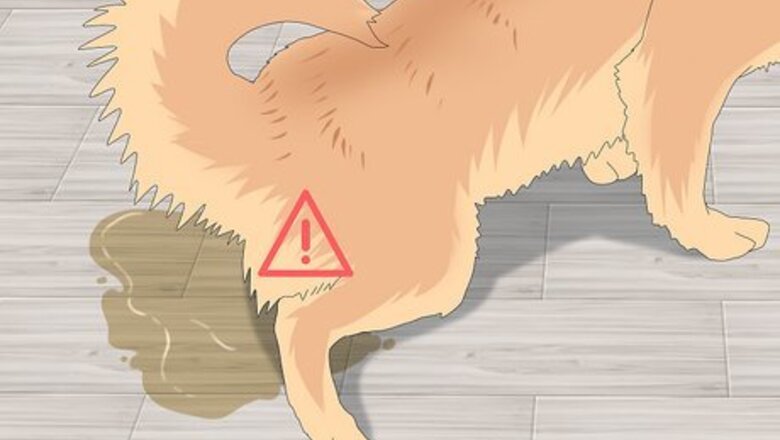
views
Health Issues
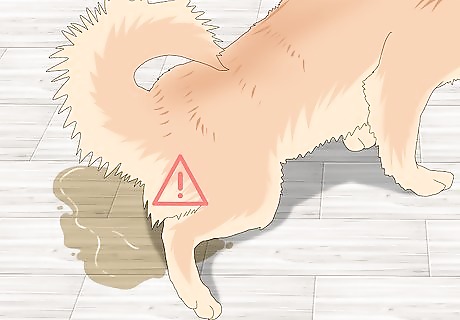
Your dog could have a UTI, or some other health related issue. A UTI (urinary tract infection) can cause dogs difficulty with holding their bladder, and if left untreated can lead to more serious health concerns. Some other indicators of a UTI are: bloody or cloudy urine, whimpering while peeing, licking around the urinary opening, and fever. To rule this out, all you have to do is take your dog to the vet. They will be able to provide mediation that will get your pup feeling better in no time (and get them to stop wetting the bed, too!).
Potty Training Regression
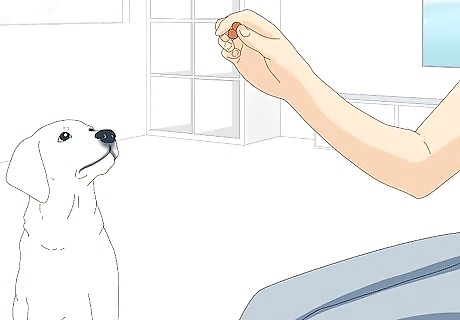
Your dog may need to be re-potty trained. Accidents happen, and this can happen more than you think. Experts say that no matter the age, if your dog is having issues going to the bathroom indoors, then the single most important thing to do is return to basic potty training. They might've just forgotten the basics! Keep treats on you and reward your dog immediately after it urinates in the correct place. If you catch your dog going to the bathroom inside, give it a firm “no” and bring it outside. Eventually, your dog will realize that going outside means a treat, and going inside means a scolding. If you return from being gone to a pee stain, don't scold your dog. They won’t understand, so the best thing you can do is remain calm and clean it up.
Standard Puppy Behavior
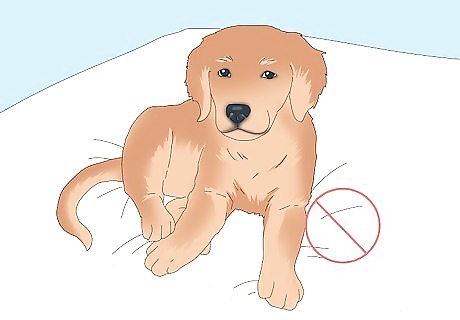
If your dog’s a puppy, then these accidents are common. Puppies have small bladders and often can’t hold their pee through the night. It’s not uncommon for the puppy to walk to the end of your bed to pee, and then go back to sleep. Don’t let your puppy sleep in your bed, at least until you know they’re potty trained. Take the puppy out right before you go to bed, and make sure it pees. If you tend to sleep in, wake up early to take the dog out–you can always go back to bed.
Cognitive Decline in Senior Dogs
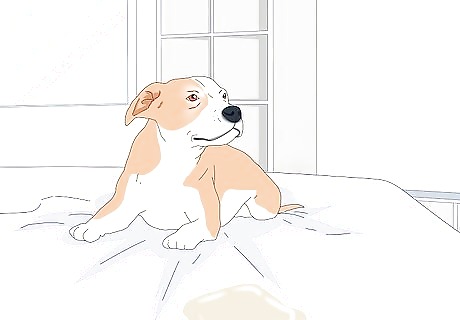
If your dog’s a senior, it may be incontinence or cognitive decline. Just like humans, dogs' bodies and minds begin to decline as they get older. Incontinence happens when the bladder loses muscle tone, causing it to leak when relaxed in sleep. Cognitive decline happens as the brain starts to fade; the old dog may forget old training habits or not realize where they are when they decide to pee. Make sure to bring your senior dog to the vet if they start peeing indoors. Professionals may be able to provide some remedies for both of these issues.
Stress

Stress and anxiety can cause your dog to pee in your bed. There are many different reasons why your dog might be feeling stressed or anxious: a change in routine, new people, a new animal, and even your own stress may be adding to this. They may seek out your bed for comfort, only to be overcome by their stress or anxiety and lose control of their bladder. The most effective and proven way to reduce your dog's stress and anxiety is by providing them with exercise and mental stimulation. Walking the same city block won’t help much, but exploring with them will.
Separation Anxiety
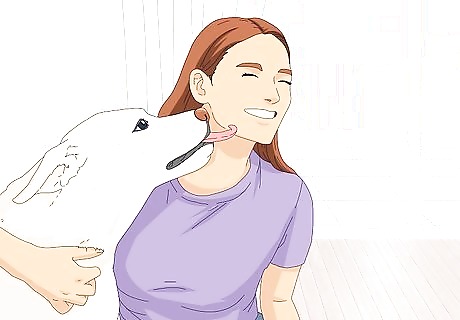
Dogs can suffer from separation anxiety, which might cause bed wetting. If you notice that the issue happens when you’re gone, and only in your bed, then this might be a sign of separation anxiety. Your dog is using your bed because it feels safe and smells like you, and they are peeing out of fear. To remedy this, try spending more time with them, or have someone your dog trusts look after them while you’re at work.
Loud Noises
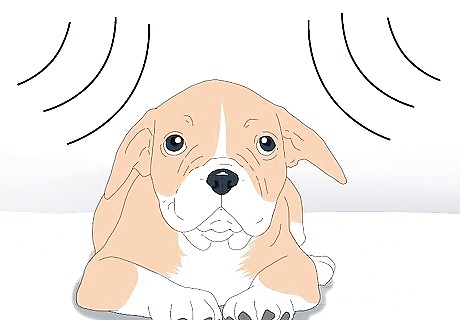
Loud noises frighten dogs, which could cause them to pee. If there are loud noises like fireworks, thunder, or gunshots going off nearby, your dog may pee themselves. If you notice your dog being afraid of loud noises, don’t take them into your bed. Instead, spend time with them in the quietest space of the house until the noise subsides.
Urine Marking
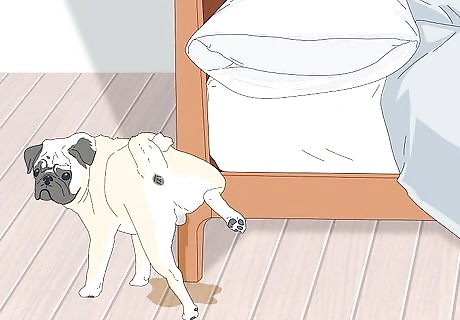
Dogs may mark certain areas with urine, including your bed. This is not a sign of dominance but rather a dog's way of announcing, “I’ve been here.” In a dog's mind, your bed is their bed, so if it smells like you, why can’t it also smell like them? Urine marking is often a small amount, so it’s easy to differentiate from peeing the bed. Clean the sheets with a urine-smell eliminating product, since dogs like to mark areas they have previously marked before. If your dog isn’t neutered or spayed, doing that will probably fix the issue.
Too Much Time in the Bedroom
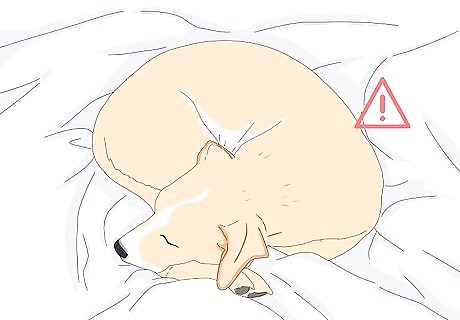
If your dog is spending a lot of time in your bedroom, then that is probably why they are peeing in it. While you work on a solution to the root of the problem, you can prevent your dog from peeing on your bed by not allowing them in your room, especially unsupervised. Limit your dog's bedroom access. If you don’t have a bedroom door to close, consider investing in a dog gate.
Infrequent Exercise
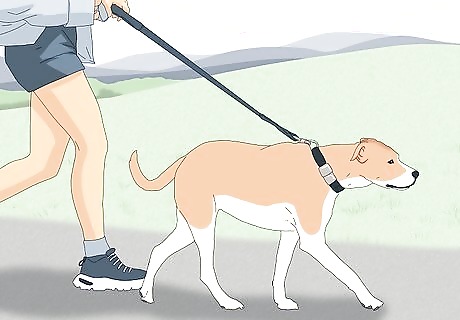
Dogs need frequent exercise. Just letting your dog out in the yard isn’t enough, you should be aiming for at least 1 hour a day of exercise–although certain breeds do have different needs. Make sure that your dog goes to the bathroom before letting them back inside. If you already walk frequently, consider making them a little longer, and make sure you’re not just walking on hard pavement–dogs prefer peeing on a natural substance like grass or the forest floor.
















Comments
0 comment